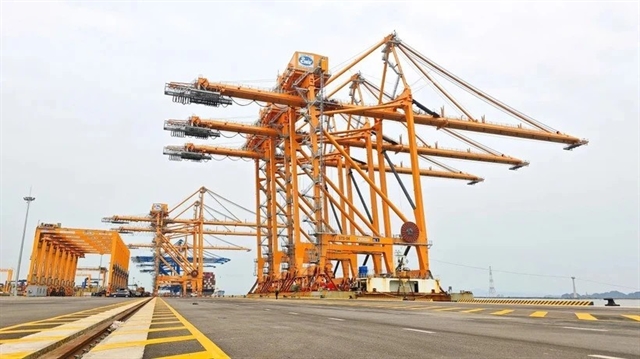A trade official has suggested companies work closely with shipping lines, airlines and freight forwarders to monitor routes, transit times and potential surcharges while exploring broader cargo insurance to cover risks like war and terrorism.

HÀ NỘI — The Ministry of Industry and Trade (MoIT) has issued a stark warning to businesses, urging them to closely monitor the escalating tensions between Israel and Iran that threaten to disrupt global trade, according to a ministry official.
Speaking at a regular press conference in Hà Nội on June 19, Deputy Director of the MoIT’s Agency of Foreign Trade Trần Thanh Hải pressed companies to stay updated via the Ministry of Foreign Affairs, the MoIT and trusted news sources to gauge risks and swiftly adjust operations.
Hải stressed rigorous scrutiny of export-import contracts, particularly key terms concerning freight charges, delivery schedules, insurance coverage, and force majeure provisions, to shield against disruptions.
He cautioned against the peril of leaning too heavily on a single market or shipping lane – a vulnerability that could prove risky in the current landscape. Instead, Hải advocated diversification: new markets to conquer, and logistics partners with safer routes to forge alliances with.
Supply chain resilience, he insisted, hinges on contingency plans – alternative raw material sources or, perhaps, the adoption of multimodal transport solutions like international rail freight, which could optimise costs and ensure timely deliveries. Maintaining open lines with import partners is also key to navigating volatile conditions, he noted.
Companies, he continued, should work closely with shipping lines, airlines and freight forwarders to monitor routes, transit times, and potential surcharges while exploring broader cargo insurance to cover risks like war and terrorism. With global oil prices and currency fluctuations posing added threat, Hải called for heightened vigilance against foreign exchange risks, pointing firms toward the MoIT, Việt Nam’s overseas trade offices, or embassies for timely support.
“The Middle East’s geopolitical volatility is a serious risk to global trade flows,” Hải said.
“Vietnamese companies must be agile, prepared, and armed with robust contingency plans to weather the storm and keep their operations afloat.” — VNS





